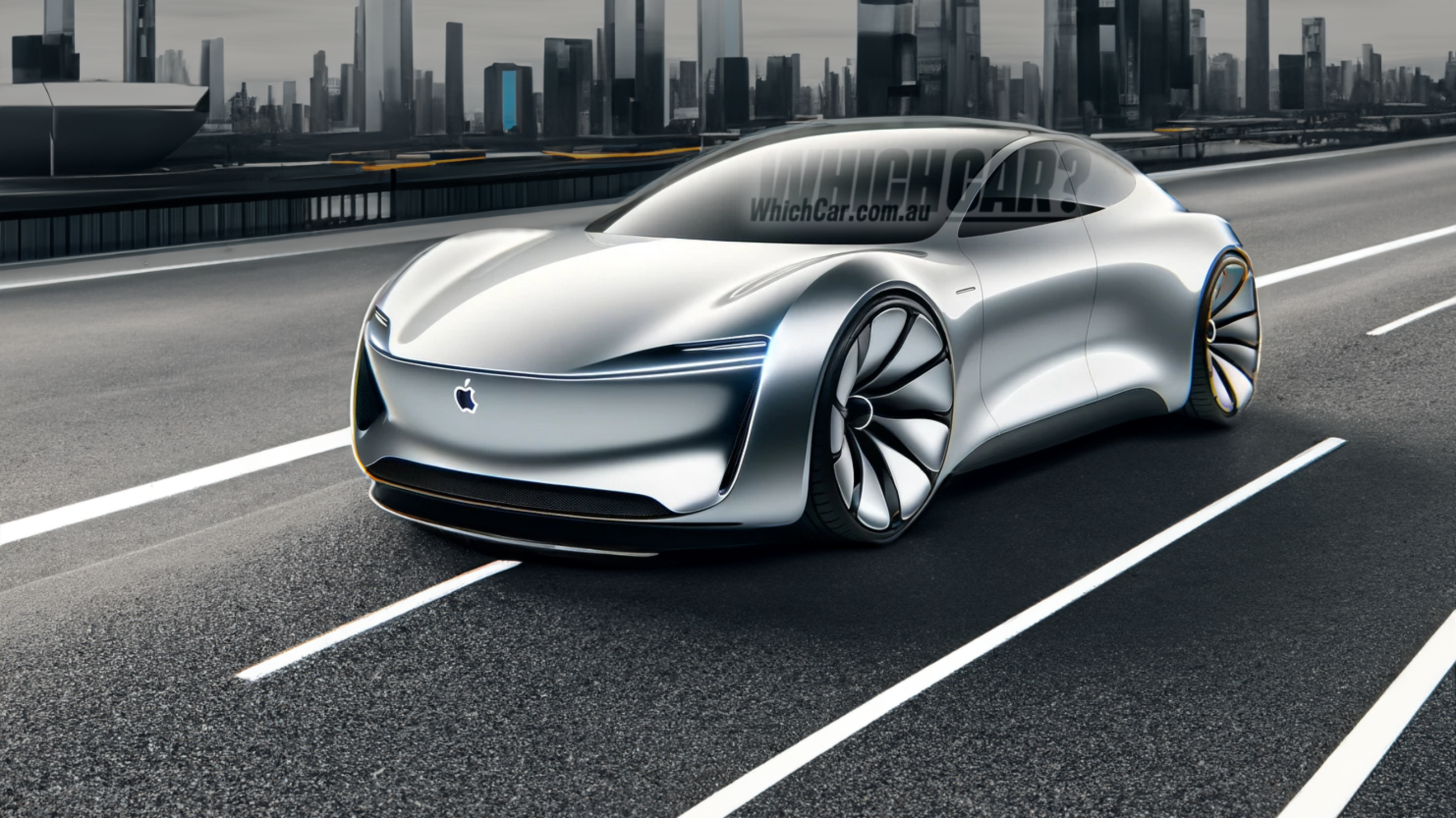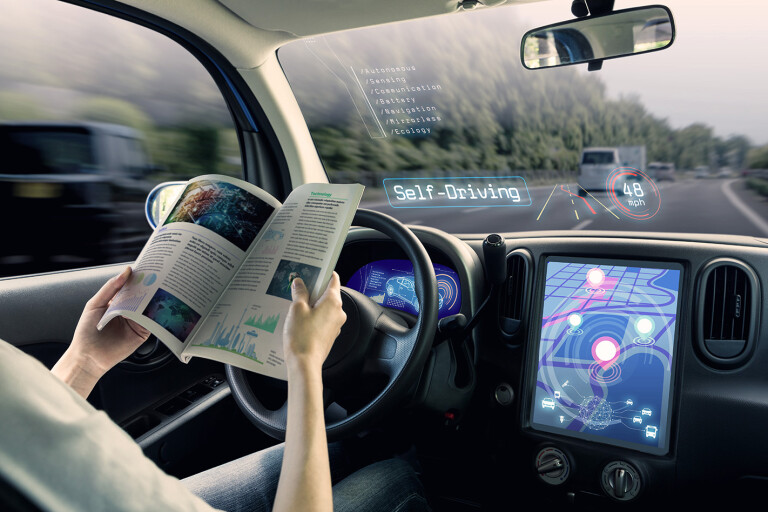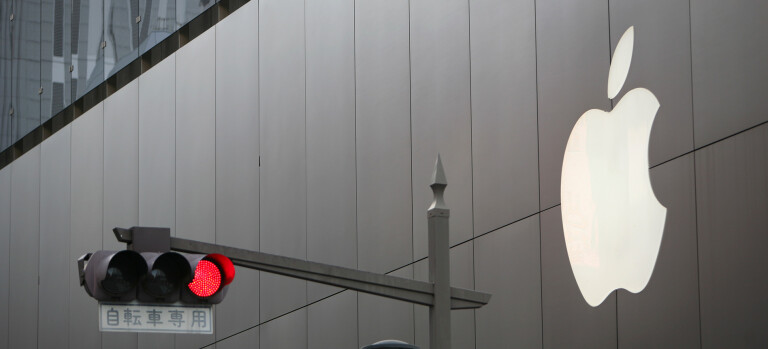
February 2024: The Apple Car is dead
After more than a decade of work, Apple has reportedly abandoned its plans to build an autonomous electric car.
According to Bloomberg, Apple has told the more than 2000 employees still working on the long-running program — known as Project Titan — that it has been discontinued, with the tech giant instead shifting its focus towards generative artificial intelligence.
Apple will reassign some staff to its AI projects, reports Bloomberg, however others have been given 90 days to find other roles within the company or they will be let go.
The news, which was reportedly delivered to staff by Apple’s chief operating officer Jeff Williams and Project Titan vice president Kevin Lynch brings an end to the hugely ambitious project which began in 2014.
At its height, more than 5000 employees were working on Project Titan, with Apple targeting an on-sale date some time in 2026.
May 26, 2022: Former Tesla exec leaves Apple
After just seven months in the job, Christopher 'CJ' Moore has left Apple, where he was rumoured to be heading up the company's push into the automotive space – a project known as 'Project Titan'.
A former Tesla executive responsible for its often derided Autopilot technology, Moore was believed to have been poached by Apple to lead development of the oft-reported, never official 'Apple Car'.
Moore will head to Luminar Technologies, an autonomous driving developer that has partnered with Volvo to offer a self-driving 'Ride Pilot' subscription service in California sometime beyond 2022.
According to business paper Bloomberg, Moore's exit is just the latest in a run of departures from the project over the past two years, although many have since been filled with executives poached from Ford and Rivian, among others.
It's believed Apple's next big iPhone-level product play will be some sort of augmented-reality glasses or virtual-reality headset, but if Project Titan is ever revealed to be an actual car, it will surely be the most pivotal moment in recent history for the tech giant.
February 2021: Hyundai backs out of manufacturing talks with Apple
Hyundai has backtracked from earlier claims that suggested it was working with Apple to develop an autonomous electric vehicle.
The Korean motoring giant and its affiliate Kia said they are no longer in talks with the tech giant, exactly a month after the former released a statement saying: "Apple and Hyundai are in discussion, but as it is at early stage, nothing has been decided."
According to Bloomberg business news, the fledgling relationship seemed to turn sour when Apple announced it had discussed similar plans with other auto manufacturers.
Not to be outdone, the South Korean carmakers said they too were in talks with multiple companies about autonomous EVs.
As a result of the news, Hyundai shares dropped by 6.2 percent in Seoul, having jumped by 24 percent when it announced it was in talks with Apple last month, while Kia slumped by 15 percent.

The seemingly failed Korean liaison is the latest twist in the ongoing saga facing Apple, the world’s richest company, ever since it revealed in 2014 that it had begun work on a mysterious automotive project.
Reality got solidly in the way of its grandiose plans, which seemed to wither on the vine – however, a Reuters report in December 2020 suggested it was still keen to get into the car game.
Run under the Project Titan moniker, Apple is reportedly looking at 2024 as the year it will launch its first car, with or without Hyundai and Kia's help.
Reportedly slated to be a mass-market passenger vehicle, the Apple car will supposedly also feature "next level” battery technology, which will extend the car’s range and reduce its cost.
Project Titan kicked off in 2014, reportedly with the aim of building its own fully autonomous car, but the iPhone maker wound back its lofty goals a couple of years ago to focus on the software side of autonomous driving.
Up to 190 people have reportedly been laid off from the project since then, as Apple’s focus turns towards partnering with an automotive supplier to build the car itself.
But a joint-venture with Hyundai, which is well on the road in its own push to embrace new technologies such as electric, driverless and flying cars, could bring Project Titan back on track.
Apple had previously been in negotiation with tier-one automotive supplier Magna Steyr – who will build the Fisker electric car and who also built an EV for Sony – to manufacture its vehicle.
Interestingly, Magna Steyr – which has built 3.7 million cars for brands like BMW and Mercedes-Benz - is actively courting customers in North American, where it’s planning to build a factory that will likely focus on the production of battery-electric vehicles.
-(1).jpg )
There are other EV startups that the tech company could collaborate with to produce a limited run of cars, too.
Electric truck and SUV maker Rivian is one of those companies, given its access to a relatively modern car plant.
There are also reports from Taiwan that large orders of key electric vehicle parts like motors and power integration systems have been made by Apple, though these are unsubstantiated.
The fledgling US EV maker may also be interested in the purported battery breakthrough that Apple is planning on bringing to the EV party.
According to the Reuters report, Apple also plans to do away with the pouch or packet structure of lithium-ion battery production, freeing up room inside the battery housing for more cells to increase its energy density.

It’s not, however, a new technology; both Tesla and General Motors are developing batteries that don’t rely on the module model.
It’s also looking towards lithium-iron phosphate technology, which allows for a more compact and potentially cheaper battery.
This technology already exists; Tesla has partnered with a Chinese company, CATL, to source complete lithium-iron phosphate batteries for its Model 3 and Model Y.
There is also the possibility that Apple will position itself as the supplier of autonomous software tech that could allow car companies to fast-track their way to higher levels of self-driving autonomy.
Either way, the first Apple car won’t be seen until 2024 at the earliest, according to the report.
COMMENTS